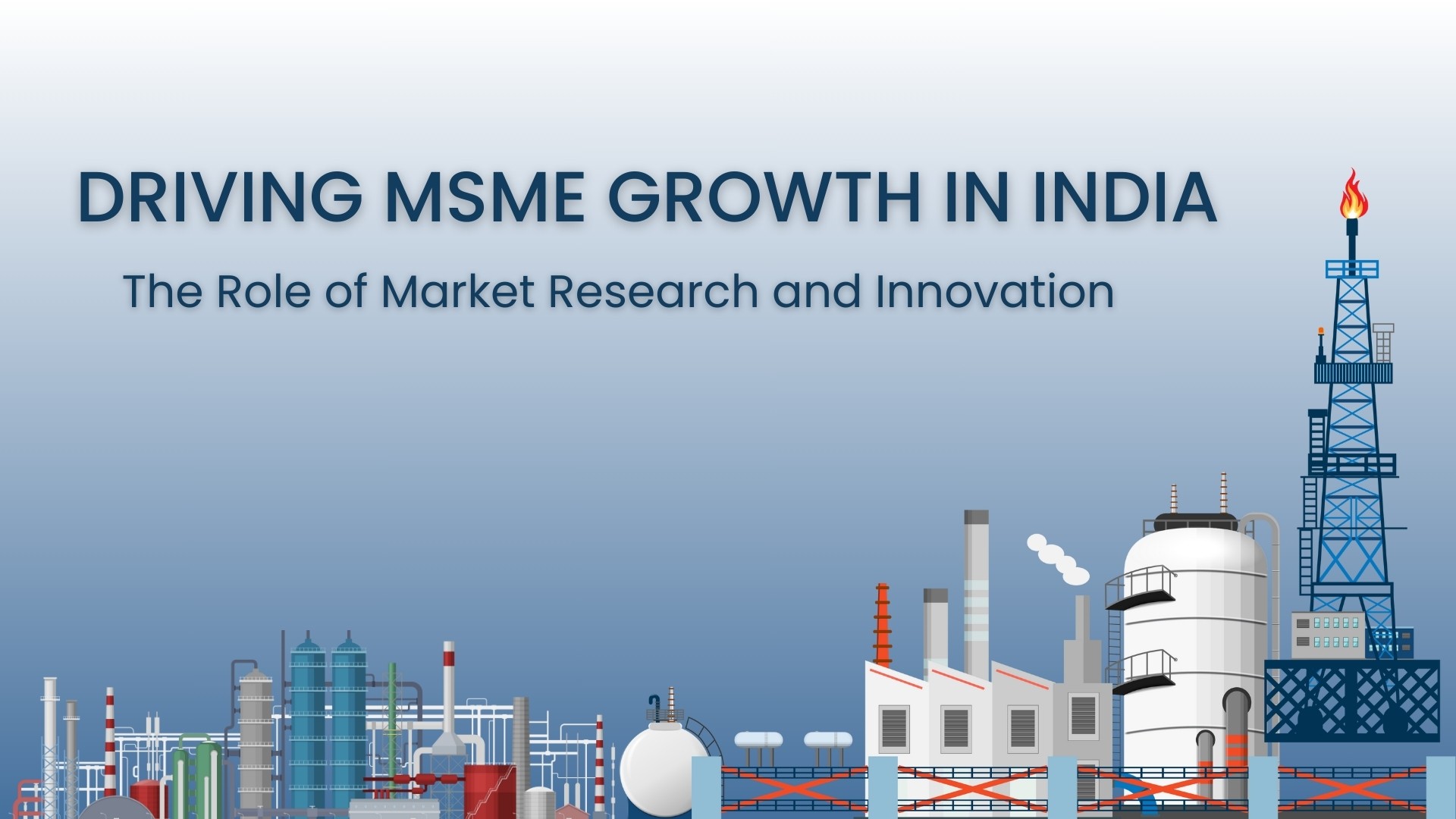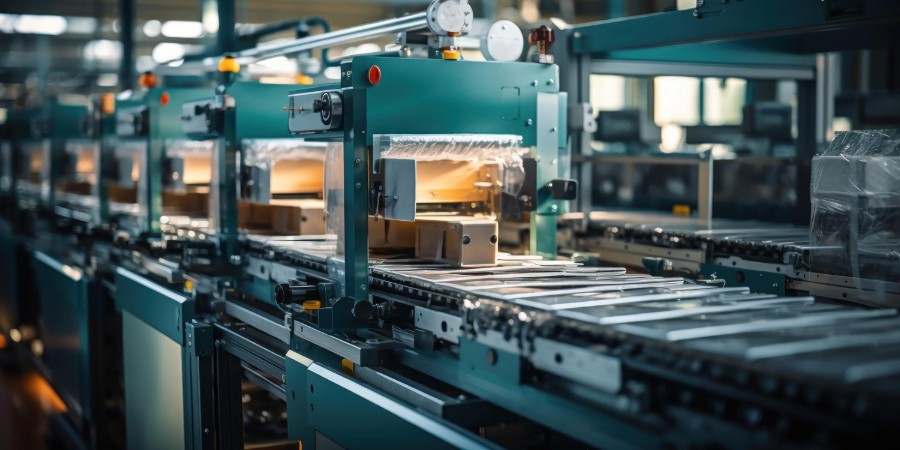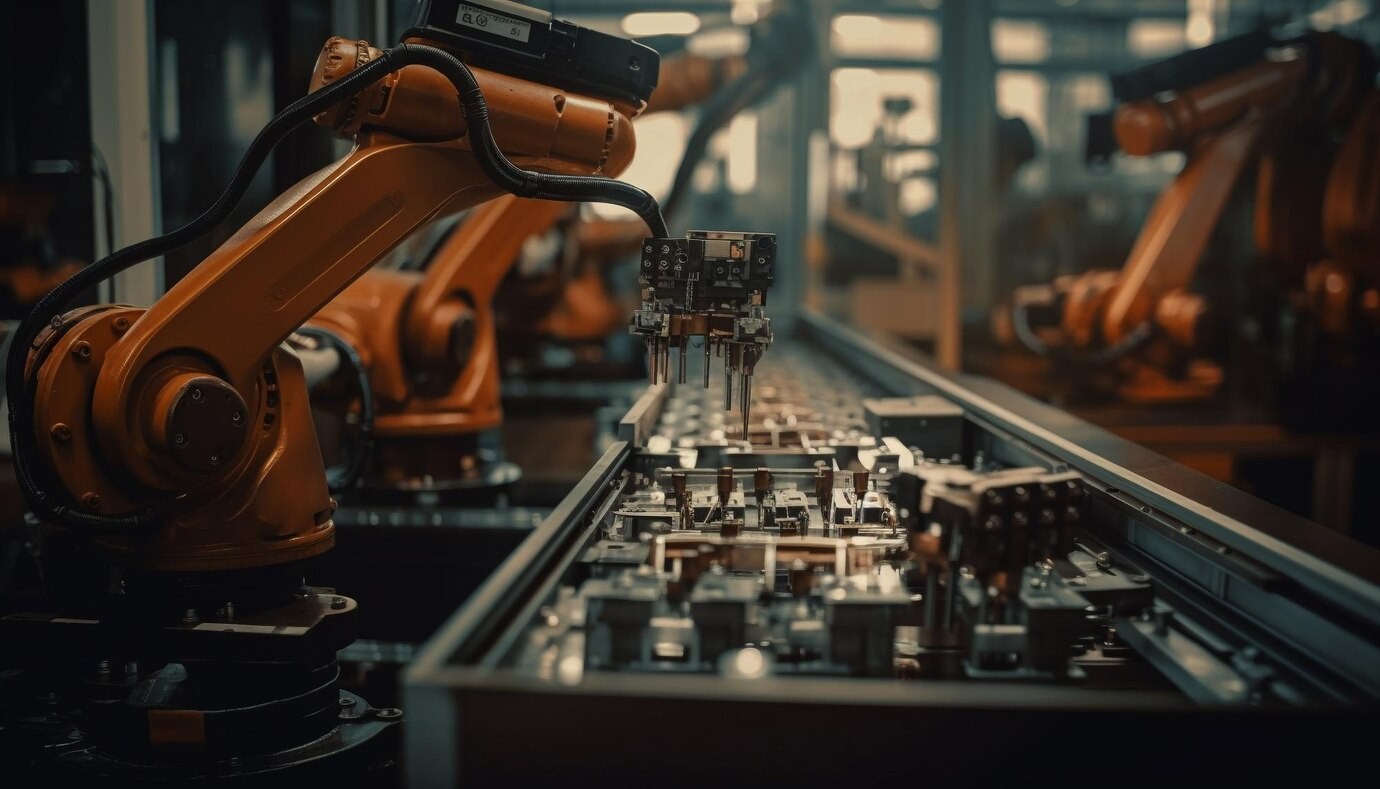
Growth without strategy is guesswork. In today’s fast-moving markets, startups and MSMES need more than ambition—clarity, direction, and adaptability. That’s where strategy becomes essential. We partner with businesses to craft growth strategies rooted in real market insights, emotional intelligence, and future-ready frameworks—helping you scale confidently and purposefully.

From boardroom to shop floor, digital twin platforms enable faster decisions, smarter designs, and future-ready ecosystems. See how industry leaders are turning complex systems into intelligent, people-first solutions.

Indian MSMEs, which employ millions of people and contribute 30% of the country's GDP, are the backbone of the economy and encompass industries like pharmaceuticals, technology, electronics, textiles, petrochemicals, and automobiles. Many, nevertheless, have trouble competing and growing. Market research helps SMEs develop strategies for long-term success by offering insightful information about trends, competition, and demand.

The Union Budget 2025-26 emphasizes MSME growth, innovation, sustainability, and digital transformation. Key initiatives include enhanced credit, export support, and investments in AI, clean energy, and infrastructure development for inclusive growth.

Davos 2025, themed Industries in the Intelligent Age highlights AI, clean energy, smart manufacturing, sustainable mobility, and climate-smart agriculture. Global leaders emphasize strategic investments, policy reforms, and cross-sector collaborations to drive innovation, economic resilience, and global competitiveness in an AI-driven world.

Empowering India’s 63M+ MSMEs contributing 30% to GDP and 45% to exports. Targeting manufacturers, traders, and service providers employing 110M+ individuals. Discover strategies for scaling operations, leveraging government schemes, and adopting green, digital, and global practices for exponential growth.

The global Digital Twin market is projected to expand from $21.1 billion in 2024 to $119.8 billion by 2029, achieving a remarkable CAGR of 41.6%. Digital twins, driven by advancements in IoT, AI, and cloud computing, are revolutionizing manufacturing, healthcare, energy, and smart cities through predictive analytics and real-time optimization.

Nanotechnology transforms industries with high-performance and sustainable advancements, impacting healthcare, energy, and agriculture. Precise drug delivery, efficient solar cells, and nano-fertilizers improve outcomes and create new markets. Investing in nanotech drives innovation and growth.

EMS is a part of the electronics industry that offers outsourced services for electronic products. It includes designing, engineering, manufacturing, testing, and logistics. EMS providers serve medical, automotive, aerospace, and consumer electronics. The electronics manufacturing services market is expected to grow to over US$900B by 2030, with a CAGR of over 8% from 2024 to 2030.

E-mobility is revolutionizing transportation with cleaner, more efficient, and quieter vehicles. Dive into the key components fueling this transformation, from cutting-edge batteries and energy-dense motors to smart charging technology and future-proof power electronics. Explore the environmental benefits, sustainability strides, and the exciting roadmap for a greener tomorrow on wheels.

Microfactories, integrating AI and sustainability practices, are gaining recognition as an agile manufacturing approach. They have the potential to reshape the industry landscape and create a more sustainable future. The synergy between innovation, demand, and regulatory support is set to propel the microfactory market to unprecedented heights.

Digital twins are virtual models that simulate the behaviour and predict the performance of physical objects or systems. The market for digital twins in Industry 4.0 is expected to grow to over $145 billion by 2030.